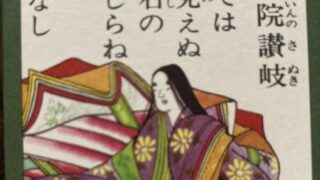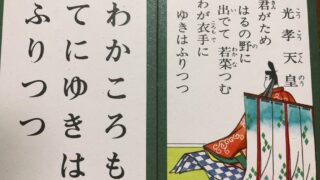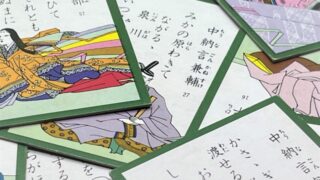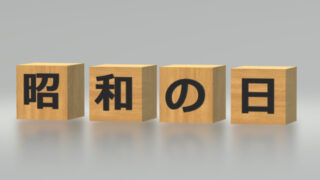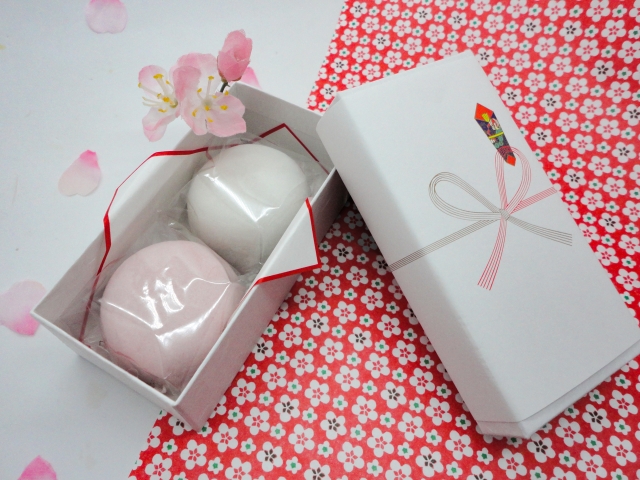9月の第3月曜日は、敬老の日という祝日です。多くの会社や学校は休みになります。祝日に関する法律では「多年にわたり社会につくしてきた老人を敬愛し、長寿を祝う日」と定められています。
この日は祖父母に会いに行ったり、プレゼントを贈ったりします。小さい子が描いたおじいさん、おばあさんの絵や、おじいさん、おばあさんへの手紙を見ると、ほほえましい気持ちになります。
「ほほえましい」とは、かわいい子どもや動物、幸せそうな人を見て、見ている人も自然に笑顔になる時の気持ちを表す言葉です。
The third Monday in September is a holiday called Respect-for-Senior-Citizens Day. Many companies and schools are closed. According to the law on national holidays, the day is to “honor the elderly who have given many years of service to society and celebrate their longevity.
On this day, people visit their grandparents and give them gifts. We smile when we see pictures of grandparents drawn by small children or letters to them.
The word “hohoemashii” describes a feeling of warmth or happiness when seeing something cute or joyful, such as a child or animal.
言葉の意味
「多年にわたり社会につくしてきた老人を敬愛し、長寿を祝う日」
It is a day to honor the elderly who have served society for many years and to celebrate their longevity.
多年にわたり
「~にわたり」はN3文法ですね。「~の間ずっと、~の間全部」。
「多年にわたり」は、「長い間ずっと」という意味です。
The word “for many years” is N3 grammar. It means “for a long time, for all areas.
For many years” means ”for a long time.
社会につくす
社会のために努力すること。仕事や子育てをすることも、社会につくすことです。
It is to strive for the good of society. Working and raising children are also ways to serve society.
敬愛する
尊敬して、親しみをもって接すること。日常の会話ではあまり使いません。
To treat with respect and friendliness. It is not often used in everyday conversation.
長寿
長く生きておめでたいということ。
This word expresses congratulations on living a long life.
この日は「長い間、社会のためにがんばってきたお年寄りを尊敬し、お年寄りが長く生きていることをお祝いする日」です。
This day is to “respect the elderly who have worked hard for society for a long time and celebrate their living long.
年齢の高い人を表す表現
年齢の高い人を表す表現は、いくつかあります。N3くらいまで日本語を勉強していると、どれを使うのか迷ったことがあると思います。ここでは、年齢の高い人を表す表現について説明します。
There are several expressions to describe people of advanced age, and if you have studied Japanese up to about N3, you have probably wondered which one to use. Here, I will explain the expressions used to describe people of advanced age.
お年寄り
年齢の高い人を表す言葉です。高齢者に対する「親しみ」を感じさせる、やわらかい言葉です。
例 お年寄りには席をゆずりましょう。
トムさんはお年寄りにとても親切です。
This term is used to describe a person of advanced age. It is a soft word that gives a sense of “friendliness” toward the elderly.
Give up your seat to an elderly person.
Tom is very kind to the elderly.
老人: Older person
同じく年齢の高い人を表す言葉ですが、「お年寄り」とは異なり、「老人」という言葉に親しみはありません。また、日本では「老」という言葉にネガティブな印象があるため、「老人」という言葉を使うことが少しずつ減っています。書き言葉の中では、中立的に使われることも多いものの、最近では「高齢者」という言葉を使うことが多くなっています。
例 犬を連れた老人が座っている。(小説)
老人福祉について話し合う。
Although the word “老人” is also used to describe a person of advanced age, it is different from “お年寄り” and does not give a friendly feeling to the listener. In addition, the use of the word “老人” is gradually decreasing because of the negative impression the word “老” has in Japan. In written language, the word “高齢者” is used more and more these days, although “老人” is often used neutrally.
An old man with a dog is sitting. (Novel)
Discussing the welfare of the elderly.
高齢者: Elderly people
この言葉は、たんに「年齢が高い人」を表す言葉です。「老人」に比べてネガティブな印象はありません。そのため、最近では、公的なお知らせやメディアで、「老人」に代わってよく使われています。
例 日本では高齢者人口が多い。
高齢者に配慮した建物のデザイン。
This word simply means “a person of advanced age. It has no negative connotations, compared to the word “老人.” For this reason, it is often used instead of “老人” in public notices and the media.
The elderly population is large in Japan.
Buildings are designed with the elderly in mind.
年配
この言葉は中年以上の人を表す言葉です。50歳以上の人に使うことが多いようです。「年配の方」、「年配の女性」、「年配の男性」のように使います。丁寧な表現なので、ビジネスの場でよく使われています。
例 年配の方のよろこぶプレゼント。
年配の方へのメッセージには、次のことに気をつけましょう。
This term is used to describe people who are middle-aged or older; it is often used for people over 50. It is used as “elderly person,” “elderly woman,” or “elderly man.” It is often used in business situations because it is a polite expression.
A gift that would please an elderly person.
In your message to an elderly person, keep the following in mind.
いろんな表現がありますが、話をしている相手のことについて言う時には、使わないでください。直接相手を呼ぶときには、「名前+さん」です。「さん」、誰にでも使えるのでとても便利な表現ですね。
There are many different expressions but do not use these words when referring to the person you are talking to. Use “name + san” when addressing the person directly. “san” is very convenient because it can be used to address anyone.
行事
この日は家族でお年寄りと過ごす以外に、地域でお年寄りにプレゼントを贈るところもあります。私の地域では、上の写真のような紅白饅頭をお年寄りに贈っています。赤と白はおめでたい色なので、紅白饅頭はお祝いによく使われます。
また、「敬老の日」の前は、お店にいい和菓子がたくさん並びます。高級な和菓子は、見ているだけで楽しくなります。おじいさんやおばあさんのよろこぶ顔を見たくて、おいしい和菓子を贈っています。
On this day, in addition to spending time with the elderly as a family, some communities give gifts to the elderly. In my community, red and white manjuu (buns) are sent to the elderly. Red and white are congratulatory colors, so those buns are often used for celebrations.
Also, before “Respect-for-Senior-Citizens Day,” many good Japanese sweets are lined up in stores. Fine Japanese sweets are fun to look at. People want to see their grandparent’s happy faces, so send them delicious wagashi.
令和六年九月十六日
。

